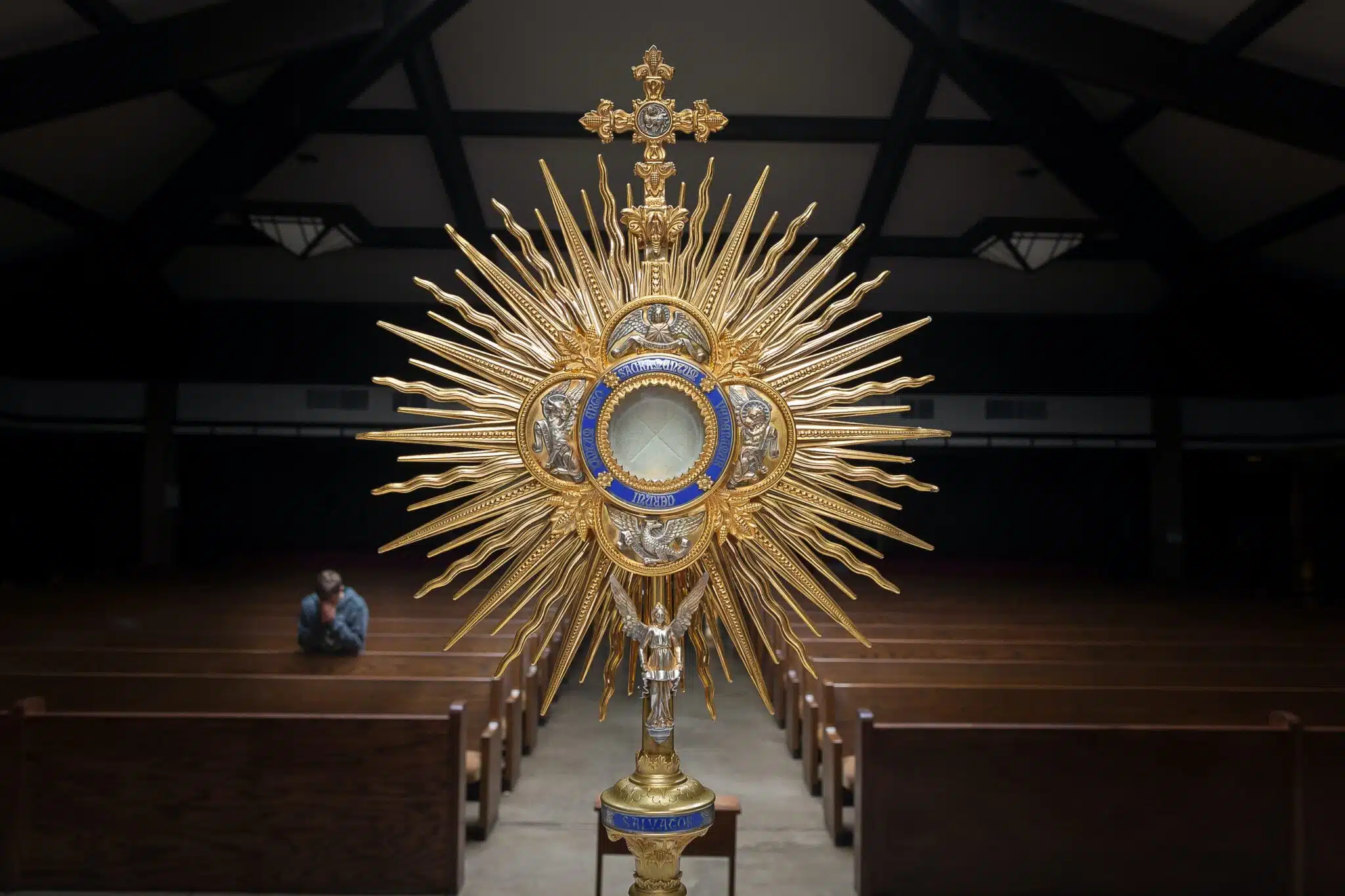What is the meaning of eucharistic adoration in the Church? I have been attending such adoration in the past year and would like to know about it. It makes me feel good to attend. Does it carry a special blessing?
This practice has become more common in recent years, especially linked to prayer for more vocations to priesthood and religious life. Some parishes now have this once a month or even weekly. In 1973, the Congregation for Divine Worship published an instruction entitled “Forms of Worship of the Eucharist: Exposition, Benediction, Processions, Congresses.”
It says: “Prayer before Christ the Lord sacramentally present extends the union with Christ which the faithful have reached in communion. It renews the covenant which in turn moves them to maintain in their lives what they have received by faith and by sacraments. They should try to lead their whole lives with the strength derived from the heavenly food, as they share in the death and resurrection of the Lord.
“Everyone should be concerned with good deeds and with pleasing God so that he or she may imbue the world with the Christian spirit and be a witness of Christ in the midst of human society” (#81).
In his 2003 encyclical “Church of the Eucharist,” Saint John Paul II wrote: “Whenever the Church celebrates the Eucharist, the faithful can in some way relive the experience of the two disciples on the road to Emmaus: ‘Their eyes were opened and they recognized him’ [Luke 24:31]” (#6).
Later, the pope explains that the worship of the Eucharist outside Mass “is of inestimable value for the life of the Church….It is the responsibility of pastors to encourage, also by their personal witness, the practice of Eucharistic adoration, and exposition of the Blessed Sacrament in particular, as well as prayer of adoration before Christ present under the Eucharistic species….The Eucharist is a priceless treasure: By not only celebrating it but also by praying before it outside of Mass, we are enabled to make contact with the very wellspring of grace” (#25).
Eucharistic adoration will certainly receive increased attention during the Year of the Eucharist proclaimed by Pope John Paul II from October 2004 through October 2005.
Generations of holy women and men have found that honest, persevering prayer before the Blessed Sacrament has helped them to open their eyes, to accept God’s grace more deeply and respond to it with greater generosity.








